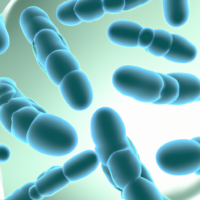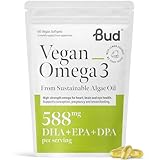Mental Health
As a specialist dietitian, I continually raise awareness about the impact and importance of diet on mental health. The recent Panorama programme regarding the difficulty of antidepressant withdrawal has highlighted the vast numbers of dependants, the need for alternatives, and if possible, avoiding them in the first place. This blog hopes to shed light on the important need and connection between diet and mental well-being exploring the intricate relationship between diet, mental health, antidepressants, and gut microbiota.
The Significance of Diet in Mental Health
The saying “you are what you eat” holds true when it comes to mental health. We have understood for many years there is a gut-brain axis, and know the complex communication network between the gut and the brain plays a vital role in mental well-being.
Numerous pathways have been identified through which diet could plausibly affect mental health. These include modulation of pathways involved in inflammation, oxidative stress, epigenetics, mitochondrial dysfunction, the gut microbiota, tryptophan–kynurenine metabolism, the HPA axis, neurogenesis and BDNF (brain-derived neurotrophic factor), epigenetics, and risks with obesity.
Mental Health – The Role of Nutrients
We know multiple nutrients have been linked to improved mental health. I have spent the past 15 yrs of my 26 yr career, working with my patients to perfect their diets not only to be optimal for their physical wellbeing but mental health too.
One group of well-known and researched nutrients are the omega-3s. These fatty acids can be found in fatty fish, walnuts, and flaxseeds but also consumed by the gallon by people in supplement form as our bodies can’t make them. (YouTube Video). Omega 3’s have good and bad press with research finding that high dose supplementation may cause atrial fibrillation and increase risk of bleeding.
Consumed in their natural form is the best option as they have a known potential in reducing symptoms of depression and anxiety when consumed as part of a bigger nutrient selection. If needing a supplement using a plant based option is ideal (see below).
- PURE VEGAN OMEGA 3 SUPPLEMENT FROM ALGAE OIL - Our Vegan Omega 3 is sourced directly from a natural & sustainable algae source. Being fish-free Bud algal oil omega 3 is free from ocean contaminants, PCB's and heavy metals & doesn’t impact on our delicate marine ecosystem or contribute to the problem of overfishing. Plus, Bud EPA & DHA Omega 3 has no fishy aftertaste! 100% plant-based omega 3 algae oil. Approved and certified by The Vegan Society.
- HIGH STRENGTH OMEGA-3 DHA, EPA + DPA - Delivers an effective daily dose of 600mg omega 3 fatty acids, providing 420mg DHA and 140mg EPA in each daily serving of two high-strength omega 3 capsules. This optimal ratio of EPA & DHA omega 3 (plus the addition of DPA) provides heart, eye, cognitive and joint health support.
- OMEGA 3 PREGNANCY, CONCEPTION AND BREASTFEEDING SUPPORT - Before, during and after pregnancy, you and your growing baby need essential fatty acids with additional DHA. Maternal DHA contributes to healthy brain and eye development of the foetus and breast fed infants. A quality pregnancy omega 3 supplement plays a crucial role in the development of your baby and your wellbeing. Bud omega 3 vegan capsules provides support from trying to conceive right through to breastfeeding and being a new mum.
- LEMON FRESH WITH NO FISHY TASTE - Our small, easy-to-swallow omega 3 vegan capsules contain marine sourced algae omega 3 oil, meaning no fishy burps or taste typical with traditional fish oil and krill oil omega 3 supplements. Plus our omega 3 capsules come with an innovative zesty lemon scent sachet using aroma technology to keep Bud epa dha omega 3 supplements smelling (and tasting!) citrus fresh.
- QUALITY ACTIVE INGREDIENTS + CLEAN FORMULAS - Bud formulas are free from unnecessary extras like fillers, additives, sweeteners and common allergens. Instead, we focus on the active high-quality, vegan-friendly nutrients your body needs. GMO Free, Gluten Free, Lactose Free, Soy Free & Vegan. NO artificial fillers, binders, anti-caking agents or coatings, NO artificial flavours & NO sugar or sweeteners.
Another well-known group of nutrients are B vitamins, found in whole grains, leafy greens, and legumes, are important for brain function and mood regulation. I see hundreds of patients take these in high doses either in singles like high dose B12 or high dose B6 believing “more is better” whilst continuing a poor quality diet. This is not recommended and can actually be at best making expensive urine and at worst cause toxic neuropathy, insomnia, headache, palpitations, anxiety and acne….
Understanding Antidepressants
Antidepressant medications are commonly prescribed to manage mental health conditions such as depression and anxiety. Common ones include:
- citalopram (Cipramil)
- dapoxetine (Priligy)
- escitalopram (Cipralex)
- fluoxetine (Prozac or Oxactin)
- fluvoxamine (Faverin)
- paroxetine (Seroxat)
- sertraline (Lustral)
- vortioxetine (Brintellix)
These medications work by increasing neurotransmitters in the brain, such as serotonin and noradrenaline. Whilst the exact mechanism of how these chemicals affect mood is not fully understood, it is believed that they help to regulate emotions and improve overall well-being.
In the UK, around one in seven now take an antidepressant. Globally they have made the pharmaceutical industry billions. When the current generation of drugs was launched 35 years ago, they promised a safe and effective treatment, free from the side effects of older medicines. But have they lived up to those claims?
While many people say they have benefited from taking antidepressants. Panorama revealed evidence of some companies trying to conceal concerns about their drugs, following patients who have suffered serious side effects as they continue their fight to be heard.
The Panorama programme highlighted they are not a standalone solution and should be used in conjunction with other therapeutic approaches.
Diet and Antidepressants: Interactions and Considerations
It’s important to remember that what we eat can also play a significant role in how our bodies respond to antidepressant medications if they are taken. Certain foods and supplements can interact with these drugs, potentially reducing their effectiveness or causing unwanted side effects. Therefore, it’s essential for individuals taking antidepressants to be mindful of their diet and speak with their healthcare provider about any potential interactions that may occur.
One example Grapefruit, is a nutritious and delicious fruit that is commonly consumed as part of a healthy diet. However, many people are unaware that grapefruit and its juice can interact with certain medications, impacting their effectiveness and potentially causing harmful side effects.
Mental Health and Gut Microbiota
The gut microbiota, the trillions of microorganisms residing in our digestive tract, have gained significant attention for their influence on mental well-being. Emerging research suggests that imbalances in the gut microbiota, known as dysbiosis, may contribute to mental health disorders. A healthy, diverse gut microbiome is associated with improved mood and cognitive function.
Research suggests that the neurochemicals produced by the gut microbiome can have a direct impact on mental health and behaviour. One such example is serotonin, which plays a crucial role as a signalling molecule in the gastrointestinal tract. Enterochromaffin (EC) cells utilize serotonin to activate afferent neurons that transmit signals to the central nervous system, making it an important sensory transducer.
Research suggests that the gut is responsible for producing a large portion of the body’s serotonin (over 90%) and roughly half of its dopamine (Berger et al., 2009). Studies conducted on germ-free mice have shown that serum levels of serotonin decrease and tryptophan increase without the presence of gut microbes, further highlighting the important role the gut plays in neurotransmitter production.(Wikoff et al, 2009)

The Impact of Diet on Gut Microbiota
Diet plays a pivotal role in shaping the composition and diversity of our gut microbiota. A diet rich in fibre, found in fruits, vegetables, whole grains, and legumes, provides nourishment for beneficial bacteria in the gut. On the other hand, diets high in processed foods added sugars, and unhealthy fats can negatively impact the gut microbiota.
Mental Health – Probiotics
Probiotics, beneficial live bacteria and yeasts, have shown promise in promoting mental well-being. Specific strains of probiotics, such as Lactobacillus and Bifidobacterium, have been associated with reduced symptoms of depression and anxiety. Incorporating probiotic-rich foods like yogurt, kefir, sauerkraut, and kimchi into your diet may support a healthy gut-brain axis. If you haven’t already do check out my previous blog on pre and probiotics.
Adopting a Mental Health-Friendly Diet
To support mental health, it’s important to adopt a well-rounded and nutrient-dense diet. Focus on whole foods such as lean proteins, fruits, vegetables, whole grains, and healthy fats like avocados and nuts. Minimize processed foods, sugary snacks, and excessive caffeine, as they can contribute to mood swings and energy crashes.
Mental Health – Lifestyle Factors
In addition to diet, other lifestyle factors play a crucial role in mental health. Regular physical activity, adequate sleep, stress management techniques, and fostering social connections are all important for overall well-being. A holistic approach that addresses these factors can complement dietary interventions for optimal mental health outcomes.
Conclusion
The relationship between diet, mental health, antidepressants, and gut microbiota is intricate and multifaceted. While diet alone may not replace the need for antidepressant medication or other treatments, it can play a complementary role. By adopting a balanced diet, supporting gut health, and considering interactions with medications, we can promote mental well-being.
Remember, the journey to better mental health is unique for each individual. It is essential to consult with healthcare professionals and consider working with a specialist dietitian to develop a personalised plan that suits your specific needs.
FAQs
- Q: Can diet alone replace the need for antidepressant medication?
- A: While diet plays a significant role in mental health, it’s essential to consult with healthcare professionals regarding the need for antidepressant medication. Diet can complement treatment but should not be considered a substitute.
- Q: Are there specific foods that can worsen symptoms of depression?
- A: Certain foods, such as processed foods high in sugar and unhealthy fats, may negatively impact mood and overall mental well-being. A balanced diet with whole foods is generally recommended. Check out the 121 Dietitian Taster Plus Programme . This is designed to optimise your diet and health for body and mind! (Scroll through the services)
- Q: How long does it take for dietary changes to positively impact mental health?
- A: The timeline for seeing improvements in mental health through dietary changes can vary from person to person. It’s important to be patient and consistent with healthier eating habits.
- Q: Can improving gut health alleviate symptoms of mental health conditions?
- A: While there is emerging research on the gut-brain connection, individual experiences may vary. Taking steps to improve gut health, such as consuming a diverse diet and considering probiotics, may have a positive impact on mental well-being.
- Q: What resources are available for individuals seeking dietary guidance for mental health?
- A: Consulting a specialist dietitian, like the author of this article, can provide personalized dietary guidance. Additionally, healthcare professionals, mental health organizations, and reputable online sources can offer valuable resources.
Links included in this description might be Amazon affiliate links. If you purchase a product or service with the links that I provide I may receive a small commission.

